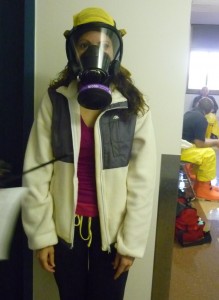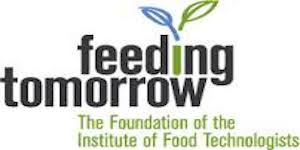 Name: Erica Bakota
Name: Erica Bakota
IFT Division: Food Chemistry
Job Title: Research Chemist
Company: United States Department of Agriculture, Agricultural Research Service
Highest Level of Education/Degree: PhD, chemistry
What does your schedule look like today?
7:30 am – 8:30 am Set up reaction in the lab
8:30 am – 9:30 am Help with science demos for Junior High Researcher Day
9:30 am – noon Answer e-mails, conference call at 10 am, complete an online training session
Noon – 1 pm Lunch with students for Junior High Researcher Day
1:00 pm – 2:00 pm Attend ACS webinar
2:00 pm – 4:00 pm Finish reaction from this morning, plan future experiments

How did you go about finding your current job?
I applied to a wide range of jobs that were posted in a variety of places. I looked for jobs on company websites, message boards, Monster.com, and USAJobs.gov. I also attended networking sessions at scientific conferences knowing that I might make valuable connections there. USAJobs.gov is exclusively for government positions, and that is where I found my current position posted. I applied through their online process.
Who do you think is the most influential person in your field?
There’s no one person that I consider to be most influential because my job spans several fields. My research is a mix of organic chemistry, food chemistry, sensory science, and materials chemistry. But if I had to choose a person that has been very influential to me in one of these fields, I would have to choose Harold McGee.
When are you most inspired?
I’m most inspired in the moments in which I know something that no one has ever known before.
If you could know one thing now that you didn’t know then, what would it be?
It depends on when “then” is. One piece of advice that I would give my younger self is to keep an open mind about jobs. You can’t always know or plan where you’ll end up, and even if it doesn’t go the way you anticipated, it’s the interesting twists and turns in life that make us well-rounded and wise people.
Why should I join the Food Chemistry (or any other) Division?
Getting involved in any division is a benefit because you’ll meet or interact with a variety of interesting people.
Join the Food Chemistry Division!
The most valuable thing a student can do to further my research/career as soon as I finish reading this interview is:
For most researchers, I think reading the literature is underutilized. No one really likes it but it’s too valuable to forego.
What is your favorite food?
Sushi!
Questions for Erica?
Send her an email Erica.Bakota@ars.usda.gov or follow her on Twitter @elaraine!






Hi there, thanks for the interview, It was really insightful. I would however like to know, with regards to Food Science, is it more reasonable to venture into Food Science and Technology or Food Science and Nutrition?
I think it depends on what your career goals are, as well as the schools you’re considering for graduate school. Some schools have food science and nutrition under the same departmental umbrella, where others do not. If nutrition is your interest, you should seek out whichever department does cover nutrition, regardless of whether it’s the food science department or not. Likewise, if food technology is more your thing, find the department most involved in food engineering. The name of the department matters less than the actual substance of your studies.
Thank You very much! Graduate school is still 3 years away and I’m currently studying in South Africa at the University of Pretoria, which is the only university in South Africa that actually offer Food Science and Technology as a BSc degree course. Should I consider a graduate school outside South Africa?